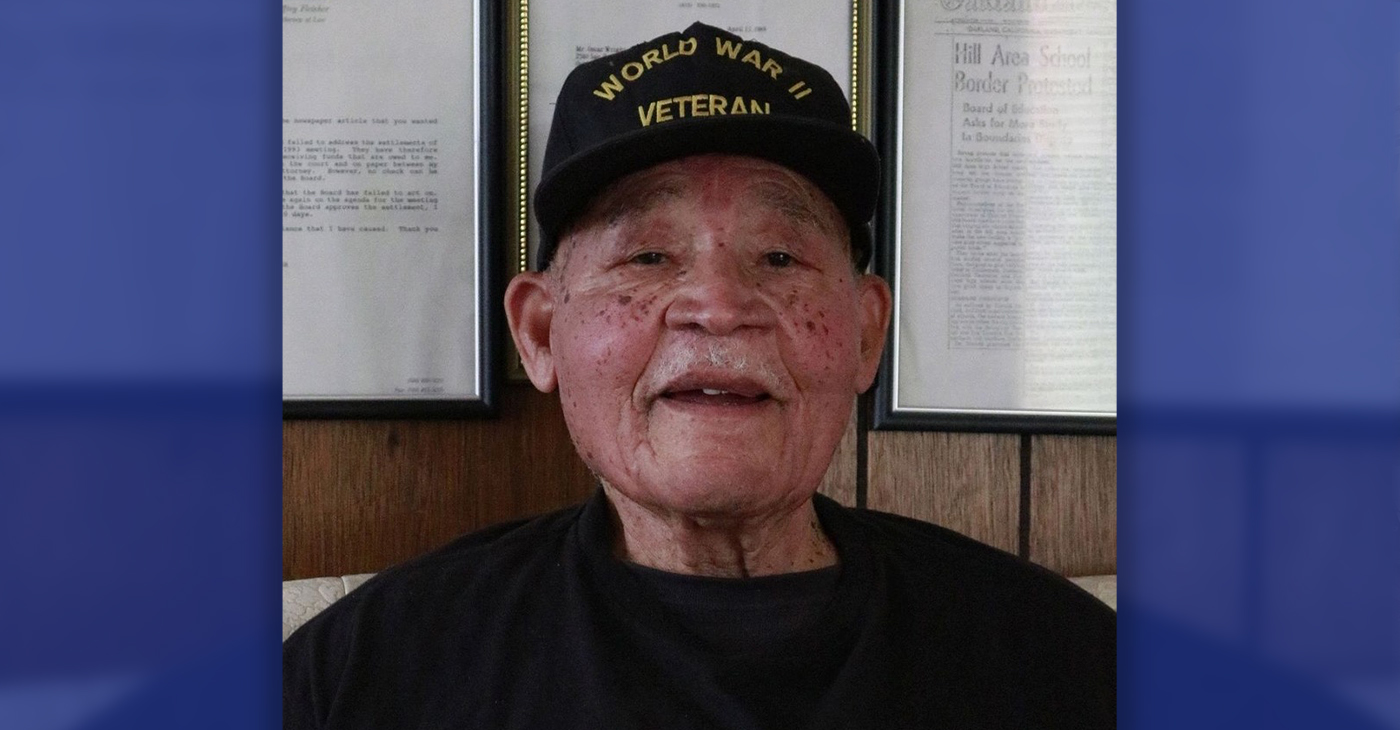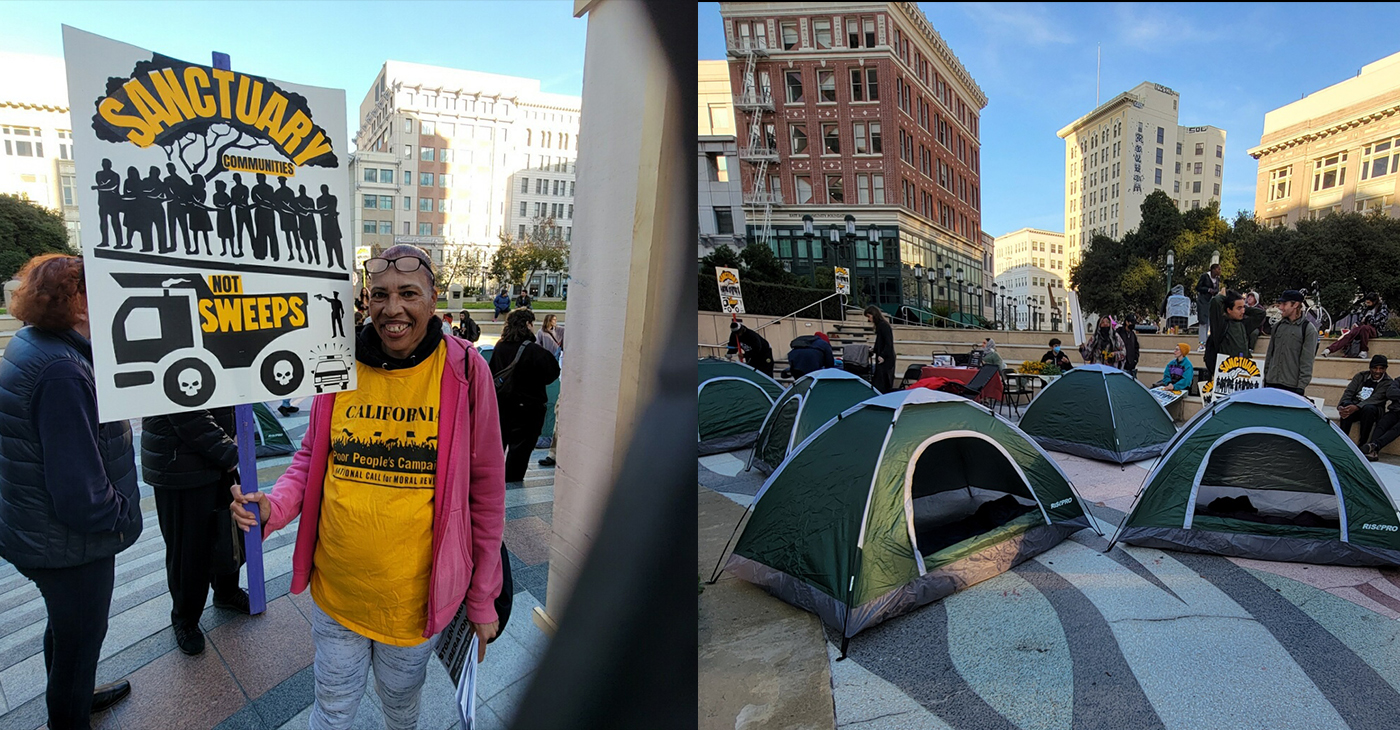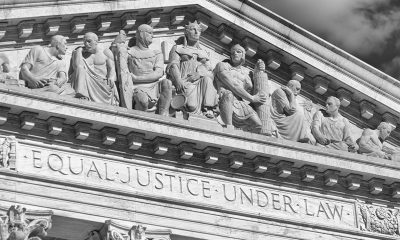Activism
Bay Area Officials Condemn Texas Abortion Restrictions, U.S. Supreme Court Ruling
Bay Area and state officials lambasted both the U.S. Supreme Court and the Texas state government after the high court declined to approve an emergency petition to stop a Texas law banning abortions six weeks or more after conception.

Bay Area and state officials lambasted both the U.S. Supreme Court and the Texas state government after the high court declined to approve an emergency petition to stop a Texas law banning abortions six weeks or more after conception.
Texas Gov. Greg Abbott signed the law, Senate Bill 8, in May, but it went into effect September 1 at 12:01 a.m. local time.
Late that night, the court issued a 5-4 ruling, with Chief Justice John Roberts joining the court’s three liberal justices in the minority, declining to rule on the petition, which was filed by Texas abortion clinics.
The court could still strike the law down in the coming days as unconstitutional, but abortion rights activists expressed skepticism that the court would do so after letting the law go into effect in the first place.
The law effectively overwrites the precedent set in 1973 by the court’s ruling in the case of Roe v. Wade by preventing pregnant people from seeking an abortion after their sixth week of pregnancy, a time when many people are not yet even aware that they are pregnant.
Rep. Barbara Lee, D-Oakland, called SB 8 “one of the most severe attacks on reproductive rights” in U.S. history.
“SB 8 is an appalling violation of human rights and reproductive rights, and will put the health of millions of people in jeopardy, especially for low-income people and people of color,” Lee said in a statement.
SB 8 does not make exemptions for pregnancies resulting from rape or incest and allows people to sue doctors, medical staff and even a patient’s ride to a medical clinic if they suspect the patient has had an abortion after six weeks.
Plaintiffs also are not required to show damages or have a connection to the patient to file a lawsuit under SB 8, and are entitled to $10,000 and their legal fees if a judge rules in their favor.
House Speaker Nancy Pelosi, D-San Francisco, said the law constructed a “vigilante bounty system” that could keep people from seeking reproductive health care of any kind.
“This provision is a cynical, backdoor attempt by partisan lawmakers to evade the Constitution and the law to destroy not only a woman’s right to health care but potentially any right or protection that partisan lawmakers target,” Pelosi said in a statement.
Vice President Kamala Harris echoed that sentiment.
“This decision is not the last word on Roe v. Wade, and we will not stand by and allow our nation to go back to the days of back-alley abortions,” Harris said in a statement. “We will not abide by cash incentives for virtual vigilantes and intimidation for patients.”
Jodi Hicks, the CEO and president of Planned Parenthood Affiliates of California, argued in a statement that the Supreme Court’s decision will inevitably lead to other states passing their own abortion restrictions.
Nearly a dozen states have already passed so-called “abortion trigger laws” that would fully outlaw the practice in the first and second trimesters as soon as Roe v. Wade is overturned.
“The inaction by the Supreme Court on a blatantly unconstitutional ban has taken away a crucial right to millions of people in Texas and without a doubt threatens their ability to make decisions about their body, their lives, and their futures,” Hicks said.
On September 2, Pelosi announced that the House of Representatives will formally take up legislation to codify abortion rights in federal law instead of relying on the court decision alone.
However, that bill, the Women’s Health Protection Act, is unlikely to find enough support in the U.S. Senate to reach President Joe Biden’s desk for a signature.
Biden said in a statement on September 1 that SB 8 “blatantly violates” the decision in Roe v. Wade and pledged to defend abortion rights across the country, but did not elaborate on what that might entail.
California Assemblywoman Buffy Wicks, D-Oakland, argued in a Twitter post that the purpose of SB 8 is clear: “to intimidate women (and) providers.”
“It cannot stand,” she said.
Activism
Oakland Post: Week of December 25 – 31, 2024
The printed Weekly Edition of the Oakland Post: Week of December 25 – 31, 2024

To enlarge your view of this issue, use the slider, magnifying glass icon or full page icon in the lower right corner of the browser window. ![]()
Activism
Living His Legacy: The Late Oscar Wright’s “Village” Vows to Inherit Activist’s Commitment to Education
Kingmakers of Oakland (KOO), a nonprofit organization that works to improve educational and life outcomes for Black boys and men, stated that “Oscar Wright is one of the most prolific, consistent, and committed advocates of equity for Black students and Black Families here in Oakland for the past six decades.”

By Antonio Ray Harvey, California Black Media
Activists mourning Oscar Carl Wright’s death, have pledged to continue his lifelong mission of advocating for Black students and families in Northern California.
Wright, 101, who passed away on Nov. 18, was involved in Oakland’s educational affairs until his death.
Now, friends and admirers acknowledge that carrying on his legacy means doubling down on the unfinished work that Wright dedicated his life, time, and resources to, according to Y’Anad Burrell, a family friend and founder of San Francisco-based Glass House Communications (GHC).
“Mr. Wright did a lot of work around equity, specifically, for Black students based on their needs — whether it was tutoring, passing classes, or graduating,” Burrell said.
Wright became a champion for his children’s education, recognizing the disparities between their school experiences and his own upbringing in the Mississippi Delta.
Burrell told California Black Media (CBM) that the crisis of unequal access to resources and a quality education continues to affect the Oakland Unified School District (OUSD).
According to Oakland Reach, in the city of Oakland, only 3 in 10 Black and Brown students are reading at or above grade level. In addition, only 1 in 10 are doing math at or above grade level.
Oakland REACH is a parent-run, parent-led organization. It aims to empowers families from the most underserved communities to demand high-quality schools for their children.
Wright’s work as an activist had impact across the state but he was primarily known in the Bay Area. Alongside the Black United Front for Educational Reform (BUFER), he filed a complaint against OUSD for violating the Civil Rights Act of 1964.
In 2000, the OUSD school board proposed an action plan to address educational inequity, but it was never implemented.
Wright later founded the African American Honor Roll Celebration at Acts Full Gospel Church, an award that recognizes Black students with a grade point average of 3.0 or better. Each year, more than 1,000 students are honored at this ceremony.
Kingmakers of Oakland (KOO), a nonprofit organization that works to improve educational and life outcomes for Black boys and men, stated that “Oscar Wright is one of the most prolific, consistent, and committed advocates of equity for Black students and Black Families here in Oakland for the past six decades.”
Burrell said that one of the main reasons Wright’s work was so essential for families and children in Oakland that is the direct relationship between acquiring a quality education and affording quality housing, maintaining food security, achieving mental wellness, and securing stable employment.
Wright was the child of sharecroppers from Coahoma County, Mississippi. He attended Alcorn State University, a Historically Black College and University (HBCU).
In the late 1950s, Wright and his family relocated to the Bay Area where he worked as a contractor and civil engineer. He later became an active member of the National Association for the Advancement of Colored People (NAACP).
Burrell said the people who will carry on Wright’s work are part of a “village” that includes KOO’s CEO Chris Chatmon. Wright was a mentor to Chatmon.
“It will not be one entity, one person, or one organization that picks up the baton because it was a village effort that worked alongside Mr. Wright for all these years,” Burrell said.
Burell says that legacy will live on.
Activism
Protesters Gather in Oakland, Other City Halls, to Halt Encampment Sweeps
The coordinated protests on Tuesday in San Francisco, Oakland, Vallejo, Fresno, Los Angeles and Seattle, were hosted by Poor Magazine and Wood Street Commons, calling on cities to halt the sweeps and focus instead on building more housing.

By Post Staff
Houseless rights advocates gathered in Oakland, San Francisco, Los Angeles, and other city halls across California and Washington state this week protesting increased sweeps that followed a U.S. Supreme Court decision over the summer.
The coordinated protests on Tuesday in San Francisco, Oakland, Vallejo, Fresno, Los Angeles and Seattle, were hosted by Poor Magazine and Wood Street Commons, calling on cities to halt the sweeps and focus instead on building more housing.
“What we’re dealing with right now is a way to criminalize people who are dealing with poverty, who are not able to afford rent,” said rights advocate Junebug Kealoh, outside San Francisco City Hall.
“When someone is constantly swept, they are just shuffled and things get taken — it’s hard to stay on top of anything,” said Kealoh.
Local houseless advocates include Victoria King, who is a member of the coordinating committee of the California Poor People’s Campaign. She and Dr. Monica Cross co-chair the Laney Poor People’s Campaign.
The demonstrations came after a June Supreme Court ruling expanded local governments’ authority to fine and jail people for sleeping outside, even if no shelter is available. Gov. Gavin Newsom in California followed up with an order directing state agencies to crack down on encampments and urging local governments to do the same.
Fresno, Berkeley and a host of other cities implemented new rules, making it easier for local governments to clear sidewalk camps. In other cities, such as San Francisco, officials more aggressively enforced anti-camping laws already on the books.
-

 Activism4 weeks ago
Activism4 weeks agoOakland Post: Week of November 27 – December 3, 2024
-

 Activism2 weeks ago
Activism2 weeks agoButler, Lee Celebrate Passage of Bill to Honor Congresswoman Shirley Chisholm with Congressional Gold Medal
-

 Activism2 weeks ago
Activism2 weeks agoPost News Group to Host Second Town Hall on Racism, Hate Crimes
-

 Activism2 weeks ago
Activism2 weeks agoDelta Sigma Theta Alumnae Chapters Host World AIDS Day Event
-

 Business2 weeks ago
Business2 weeks agoLandlords Are Using AI to Raise Rents — And California Cities Are Leading the Pushback
-

 Activism3 weeks ago
Activism3 weeks agoOakland Post: Week of December 4 – 10, 2024
-

 Arts and Culture1 week ago
Arts and Culture1 week agoPromise Marks Performs Songs of Etta James in One-Woman Show, “A Sunday Kind of Love” at the Black Repertory Theater in Berkeley
-

 Activism2 weeks ago
Activism2 weeks agoOakland Post: Week of December 11 – 17, 2024




























































